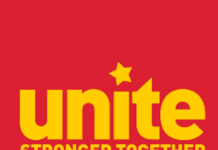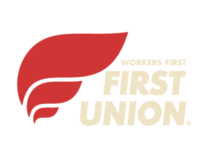E tū cabin crew leaders, who fly on 787s and who are responsible for inflight crew training, have issued strike notices to Air New Zealand, in frustration and increasing anger at faltering wage talks as part of a new collective agreement.
The strike would put a ban on regulatory in-flight training of existing and returning crew, taking effect from 22 March.
It won’t affect the travelling public, but, if it goes ahead, it will mean delays in training crew.
Members want to send a strong message to Air New Zealand that it needs to come to an agreement on paying decent wages to its workers.
On behalf of the striking aviation trainers, Sandie Bartlett, a member of the E tū negotiating team, says the decision to strike is never taken lightly, but members have run out of other options.
“We’ve been in bargaining for more than two years, and the company has so far refused to recognise that the wages for experienced cabin crew returning from redundancy are too low.
“Their start rate is only just above Minimum Wage, when crew want to see it starting from at least the Living Wage.”
The member says Air New Zealand’s focus on ultra-long-range trips to North America means the company wants crew to fly for up to 19 hours, and up to 22 hours in the case of a disruption to the scheduled flight times.
However, the crew want a fair wage to do so and clearer rules on fatigue management.
“We need reassurances our wages will go up and that our rosters won’t increase the existing fatigue problems all crew face.”
E tū’s head of aviation, Savage, who is also the advocate for the agreement, says the collective agreement for the group has been in negotiation since the end of 2019.
“Before the pandemic pay rates were so low, members were heading toward full strike action.
“However, in terms of workers’ pay, the situation still hasn’t changed. There has been no increase in the start rate since October 2018,” he says.
“We recognise that Air New Zealand is in debt and needs to trade its way back to profitability, but it also needs skilled staff. Crew can’t survive on these low rates.
“We don’t believe the company will be able to retain experienced and trained crew with the amount it has offered so far.”
Savage says at this stage cabin crew have chosen to limit their strike to the in-flight training component of their jobs to avoid major disruption to passengers.
However, there’s no doubt that a decent pay increase must be on the cards for members to consider a resolution – something that the company’s baggage handlers have already won, now their starting rates are up to almost the Living Wage.
“Cabin crew are responsible for safe operations in the air and go through extensive training to develop the experience and expertise needed to do their jobs,” Savage says.
“As essential workers, this group has also made significant sacrifices both personally and professionally to ensure that New Zealanders have had access to air travel during the pandemic.
“It’s only fair that they are provided with decent jobs with pay rates which reflect that and the high level of personal commitment they bring to their work.”





